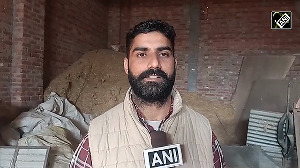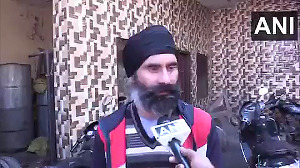The hugely successful 59-year-old, who led the Netherlands and South Korea to the semi-finals of the last two tournaments, will be in charge of Australia in this year's event in Germany.
He had previously announced his intention to leave the part-time Australia post and his job at PSV Eindhoven at the end of a season in which they have already retained the Dutch league title.
Russia failed to qualify for the World Cup, which begins on June 9 while Australia are taking part for the first time since 1974.
The Russia Union said Hiddink had agreed a 2-1/2 year contract and would travel to Moscow to sign it on Friday.
"We worked very hard to find a candidate for this position. We met many specialists, including those from Russia, but we decided to go with Guus Hiddink," Itar-Tass news agency quoted Russia soccer chief Vitaly Mutko as saying.
For the first two years Hiddink will receive two million euros ($2.43 million) per year, with bonuses for good performance, he added. If all goes well the contract could be extended to 2010 and the World Cup in South Africa, should Russia make it.
Wednesday's announcement had been widely expected after Hiddink's agent Cees van Nieuwenhuizen told Dutch TV this week that the coach had agreed a contract.
He had already told his employers in Australia he would be leaving and announced last month that he would end a four-year spell at PSV.
On Sunday, PSV clinched their 19th league title and sixth under Hiddink, who also managed the team in the late 1980s.
Since his arrival in Eindhoven in 2002, PSV have won the title in 2003 and the double two years later, when they also reached the Champions League semi-finals.
Russia have been without a coach since November when Yuri Syomin quit after they failed to qualify for the World Cup.
Hiddink has said previously that his backroom team would be a combination of Dutch and Russian staff.
"I will form a Dutch staff but also with a Russian who knows Russian football," said Hiddink. "We have to analyse the situation and get the team afloat."








 © 2025
© 2025